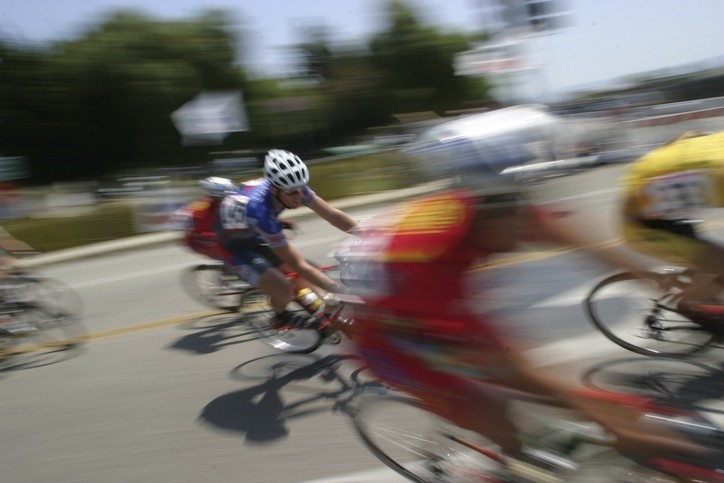‘An ecological perspective’ is needed to optimise cyclists’ gut health: Study

The researchers from Spain recruited 16 professional cyclists competing in the Vuelta a España, a 3,290.7 km Grand Tour cycling stage race that took place in Spain, Andorra, and France from Aug. 24 to Sept. 15 2019.
Based on the assessment of dietary intake and faecal samples throughout the three-week race, the study concluded that changes in gut microbiota composition, which were influenced by carbohydrate (CHO) intake, correlated adversely with performance.
"The composition and periodization of supplementation during a Grand Tour, particularly carbohydrates, could be designed to modulate gut microbiota composition to allow better performance," the researchers wrote in the journal Nutrients.
"Future strategies to enhance the performance of high-level athletes could include the selective growth of specific targeted bacterial taxa using à la carte prebiotics instead of the current ineffective probiotic supplementation, which usually cannot maintain stable populations in the gut ecosystem."
Athletes' gut health
Grand tours involve repeated and continuous days of competition, entailing extreme physiological and metabolic demands and responses, components of exercise that have been identified as factors that can modify the diversity and abundance of certain bacterial groups.
Research suggests that gut microbiota composition and metabolic activity directly influence physical performance, and there is an increasing interest in the potential of sports supplements to enhance performance by modulating gut microbiota composition and metabolic activity.
Depletion of energy is a common limiting factor during exercise, which is often targetted through carb loading where athletes will maximize their glycogen stores before endurance events by increasing CHO intake through both food and supplements. However, there is evidence that simple CHO intake may adversely impact the gut microbiota and, in turn, sports performance.
The effects of various supplements (probiotics, prebiotics, proteins, antioxidants, branched-chain amino acids, caffeine, etc.) on gut microbiota are well established, but the researchers noted that more informations is needed on how exercise, especially in high-level athletes during competition, affects gut microbiota composition, which makes supplementation "imprecise and potentially ineffective".
Supplementing during races
During the race, faecal samples were collected at four time points: the day before the first stage (A); after 9 stages (B); after 15 stages (C); and on the last stage (D). Faecal microbiota populations and SCFA content were analysed using 16S rRNA sequencing and gas chromatography, respectively, and dietary intake recorded using a validated food frequency questionnaire.
The consumption of high-CHO sports supplements increased significantly during competition (CHO drinks: 442 ± 677%; gels: 533 ± 47%; energy bars: 288 ± 214%; sport snacks: 167 ± 145%).
The athletes also consumed probiotic supplements daily during the competition, including combinations of the species Bifidobacterium lactis, Bifodobacterium bifidum, Lactobacillus paracasei and Lactobacillus acidophilus.
Data analyses were carried out to explore the dynamics of microbiota and SCFAs and their relationship with performance.
Findings indicated that Bifidobacteriaceae, Coriobacteriaceae, Erysipelotrichaceae and Sutterellaceae presence correlated with strong final performance.
Cyclists with a lower frequency of consumption of CHO-rich supplements (CHO drinks, gels, and sports snacks, taken together) showed a tendency towards a higher relative abundance of the family Bifidobacteriaceae.
While consumption of high-CHO sports supplements increased significantly in all participants during competition, the cyclists with the lower increase in their CHO consumption showed a tendency towards a higher abundance of Bifidobacteriaceae, which was related to a lower accumulated time at the end of La Vuelta and therefore, better performance.
Additionally, the researchers found that they were "unable to detect any of the strains included in the probiotic supplements or in the probiotic foods used".
"Although the cyclists were taking probiotic supplements containing bifidobacteria during competition, the relationship between bifidobacteria abundance and performance appears to be modulated by diet in a way that is apparently more relevant to performance than the use of probiotic supplements,” they concluded.
“Further research into the composition of the intestinal microbiota and the products of its metabolic activity will help understand its potential modulatory role in the response to exercise and to optimize and personalize the use of supplements.”
Industry perspectives
“The result of the study is a vital finding because it shows a direct link between shifts in the microbiome and how well athletes performed,” stated Nathan Gray, co-founder of microbiome supplement start-up Advanced Biotics.
Continuing to explore the intricate relationship between diet, the microbiome, and physical performance, will make it easier to offer athletes tailored solutions that support their gut health and, by extension, their athletic achievements, he noted.
"The relationship between the microboime and physical performance is fascinating and just beginning to be explored. This study is one of the first steps into this exciting unknown and may ultimately give athletes yet another factor to optimize," added Nathan Price, chief scientific officer at Thorne HealthTech, the wellness company specializing in personalized solutions.
Journal: Nutrients
doi: 10.3390/nu16050661
“Dynamics of Gut Microbiota and Short-Chain Fatty Acids during a Cycling Grand Tour Are Related to Exercise Performance and Modulated by Dietary Intake.”
Authors: Manuela Fernandez-Sanjurjo et al.











